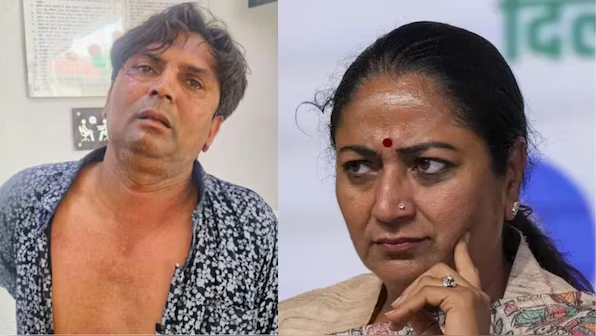RSS Chief Mohan Bhagwat Urges National Unity, Self-Reliance in Face of Modern Threats
Rashtriya Swayamsevak Sangh (RSS) Sarsanghchalak Mohan Bhagwat on Thursday made a clarion call for unity, vigilance, and self-reliance, stating that India must be internally strong and ideologically secure to counter both visible and hidden threats.
Speaking at the valedictory function of the Karyakarta Vikas Varg-2, an RSS training camp held in Nagpur, Bhagwat addressed a gathering of Sangh workers and leaders, focusing on the challenges facing India — both from external adversaries and internal divisions.
New-Age Threats Demand Modern Responses
Referring to the evolving nature of global conflict, Bhagwat observed that warfare in the modern era has moved beyond conventional battlefields
. “Today, the nature of warfare has fundamentally changed. From cyberattacks and digital propaganda to proxy wars and terrorism, threats are now multi-dimensional and unpredictable,” he stated.
He emphasized that to survive and thrive in this changing environment, India must invest in its own capabilities, technologies, and internal solidarity.
“We don’t view anyone as an enemy,” he said, clarifying the Sangh’s philosophy of universal goodwill. “However, the world does not always operate with the same intention. Hence, preparedness and self-reliance are essential. We must never let our guard down.”
Two-Nation Theory and Ideological Divides Still Persist
Bhagwat did not mince words when addressing ideological rifts that persist within Indian society. Referring to the two-nation theory — the historical doctrine that led to the partition of India — he warned that its lingering influence continues to threaten India’s unity.
“As long as such divisive ideologies exist and doublespeak continues in political and social discourse, India will remain under threat,” he said.
He stressed that while technologies and strategies may evolve, truth and national loyalty ultimately determine who truly stands for the nation.
Strength Lies in the People, Not Just Institutions
The RSS chief underlined that a nation’s resilience is rooted in the character and commitment of its citizens, not merely in its military or administrative infrastructure.
Referring to the recent terrorist attack in Pahalgam, he acknowledged the sorrow felt by the nation but also highlighted the spirit of unity and the rapid, coordinated response that followed.
He used this example to underline the importance of emotional unity and a shared national purpose, stating, “The collective strength of the people is the strongest shield a nation can possess.”
Call for Peace, Harmony, and Social Responsibility
Touching upon internal societal discord, Bhagwat urged people not to succumb to narratives of victimhood, provocation, or internal polarization.
“No section of society should ever feel isolated or opposed to another. Violence or aggression is never the answer. We must resolve our differences through dialogue and understanding,” he asserted.
His message was clear: building a united India requires social cohesion, mutual respect, and the rejection of divisive ideologies — regardless of their political or religious origin.
Congress MP Arvind Netam Praises RSS’s National Contributions
Adding a note of rare political appreciation across party lines, Congress MP Arvind Netam, who attended the event as chief guest, offered high praise for the RSS.
He acknowledged the organisation’s enduring contribution to India’s unity, service, and integrity, saying, “The kind of selfless work the Sangh has done for national cohesion and welfare is unparalleled.”
Netam also expressed concern over the growing issue of religious conversions, describing it as a significant threat to the cultural fabric of Indian society.
“This is a problem that can destabilize communities if left unaddressed. In this matter, only the RSS has the structure, vision, and reach to bring about real change. Without the Sangh’s support, society will struggle to find lasting solutions.”
Towards a Unified and Resilient India
In conclusion, both leaders — though from different ideological backgrounds — converged on the theme of unity, cultural preservation, and the importance of grassroots mobilisation.
Bhagwat’s message was a powerful reminder that true national strength lies not in divisive rhetoric, but in collective responsibility, cultural consciousness, and the ability to stand united in the face of both old and new threats.
As the country navigates a complex global landscape, his speech served as both a warning and a call to action — to build a self-reliant, harmonious, and secure India founded on enduring civilizational values.




